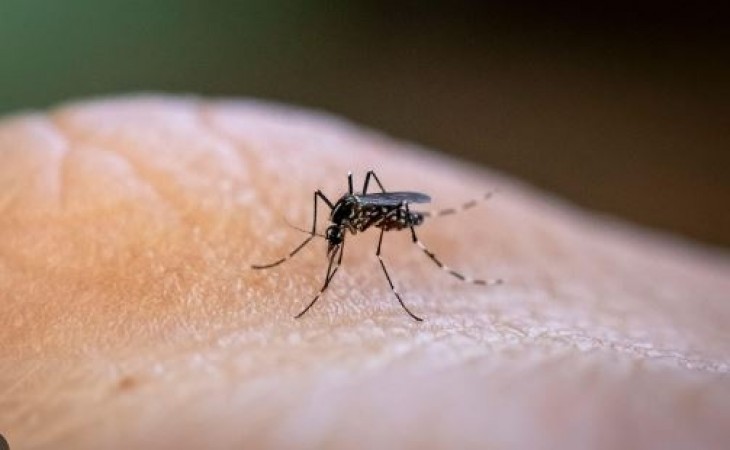
Mosquitoes are not just a nuisance; they are vectors for several serious diseases that can pose significant health risks. During the rainy season, when mosquito populations surge, the likelihood of contracting these diseases increases. Here’s a detailed guide on how to protect yourself from the most serious mosquito-borne illnesses.
1. Understanding Mosquito-Borne Diseases
Malaria: Malaria is caused by the Plasmodium parasites, which are transmitted through the bite of an infected Anopheles mosquito. Symptoms include fever, chills, and flu-like illness. If left untreated, malaria can lead to severe complications such as organ failure or even death.
Dengue Fever: Spread by Aedes mosquitoes, dengue fever is characterized by high fever, severe headache, pain behind the eyes, joint and muscle pain, rash, and mild bleeding. Severe cases can progress to dengue hemorrhagic fever or dengue shock syndrome, which can be life-threatening.
Japanese Encephalitis: This viral infection is transmitted by Culex mosquitoes and causes inflammation of the brain. It can lead to severe symptoms such as high fever, headache, neck stiffness, and neurological symptoms like confusion or seizures. In severe cases, it can result in coma or death.
Yellow Fever: Transmitted by Aedes mosquitoes, yellow fever starts with symptoms such as fever, chills, loss of appetite, and muscle pain. It can progress to more severe symptoms like liver damage (jaundice) and bleeding. While not common in India, yellow fever is prevalent in parts of Africa and South America.
Chikungunya: This virus, carried by Aedes mosquitoes, causes fever, joint pain, and rash. The acute symptoms usually resolve within a week, but joint pain can persist for months or even years.
Zika Virus: Also transmitted by Aedes mosquitoes, Zika virus symptoms include mild fever, rash, joint pain, and conjunctivitis. It poses a particular risk to pregnant women, as it can cause severe birth defects such as microcephaly in newborns.
2. Preventive Measures
Use Mosquito Repellents: Apply insect repellents that contain DEET, picaridin, or oil of lemon eucalyptus. These are effective in repelling mosquitoes and should be applied to exposed skin and clothing.
Wear Protective Clothing: When outdoors, wear long-sleeved shirts, long pants, socks, and shoes. Light-colored clothing is preferable as it is less attractive to mosquitoes.
Install Window and Door Screens: Ensure that windows and doors are fitted with screens to keep mosquitoes out. Repair any holes or gaps promptly.
Use Mosquito Nets: In areas where mosquitoes are prevalent, especially during sleeping hours, use mosquito nets. For additional protection, treat the nets with insecticide.
Eliminate Standing Water: Mosquitoes breed in stagnant water. Regularly check and eliminate sources of standing water around your home, such as in flower pots, buckets, old tires, and clogged gutters.
Use Mosquito Traps and Coils: Use mosquito traps or coils that release insecticides to reduce mosquito populations in and around your home.
Maintain Cleanliness: Keep your surroundings clean and remove any debris that can hold water. Regularly clean water containers and keep them covered.
Avoid Peak Mosquito Activity Times: Mosquitoes that spread diseases are often more active during dawn and dusk. Try to limit outdoor activities during these times or take extra precautions.
Vaccination and Medication: For certain diseases, vaccines are available. For example, a vaccine is available for Japanese encephalitis in endemic areas. Consult with a healthcare provider about vaccinations or medications for travel to areas where mosquito-borne diseases are prevalent.
3. Health Monitoring and Action
Monitor Symptoms: Be vigilant for symptoms of mosquito-borne diseases, especially if you live in or travel to an area where these diseases are common. Early detection and treatment are crucial.
Seek Medical Advice: If you experience symptoms such as high fever, severe headache, or joint pain, seek medical attention promptly. Many mosquito-borne diseases can be managed effectively if diagnosed early.
Follow Health Guidelines: Adhere to public health advisories and recommendations, especially during outbreaks of mosquito-borne diseases.
Mosquito-borne diseases pose a significant health threat, especially during the rainy season when mosquito populations increase. By implementing preventive measures, staying informed, and seeking prompt medical care, you can reduce your risk of contracting these serious diseases. Protect yourself and your loved ones to ensure a healthier and safer environment.
Health Minister J P Nadda Reviews Monkeypox Situation in India
No Mpox Cases in India: Karnataka Minister Assures Public
Excessive Vitamin C Intake Can Harm Digestion and Beauty: Learn About the Disadvantages